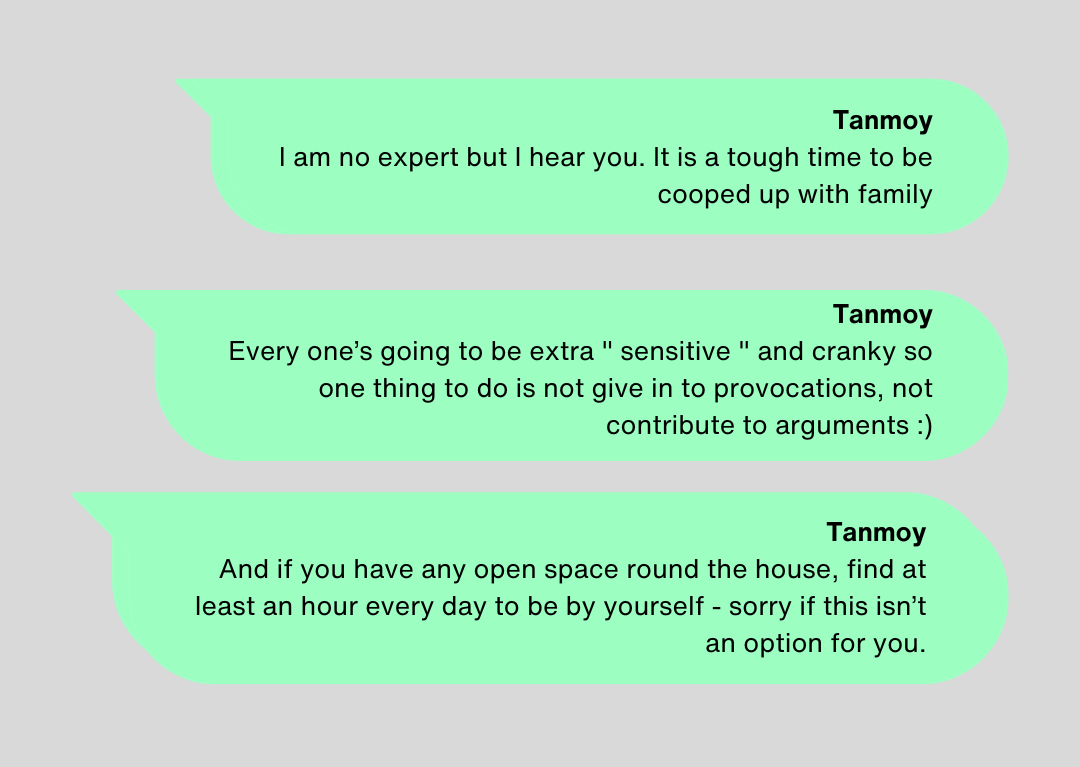🗝️ Sanity Classics: The psychology of "How dare you ask for personal space?!"
Independence v interdependence.
Here's a reminder that surviving as an independent creators is devilishly hard and getting harder every day. It's up to you to help keep Sanity alive. Please share Sanity with friends and family and support my work by choosing one of the options below today.
Thanks. - Tanmoy
Help me from India
Help me from elsewhere
At the start of the Covid lockdown in 2020, I got a DM from a 25-year-old Indian man living with anxiety. While the rest of the world was moaning about social isolation and loneliness, his problem was the opposite: He was stressed about being cooped up for weeks with his family. He'd already had some intense arguments with them and asked if I had any tips on how to survive this volatile arrangement.
I gave him the best advice I could think of – find some space where you can get away from your family for an hour every day. But even as I typed my reply, I eye-rolled at how facetious I sounded.
You see, 'space' can be a taboo idea in our part of the world. More so if the person demanding it is your child.

How space became a bad word
According to parenting influencers, the modern parent must teach themselves a number of critical parenting skills or risk screwing up their child for good. The syllabus includes:
"Collaborate, don't command."
"Praise the effort, not the outcome," and
"Say 'big feelings', not 'tantrum'."
But the most emotionally wrenching test for parents of my vintage – I grew up in a small industrial town in the pre-liberalisation India of the 80s and 90s, in a one-bedroom house with no fences and no concept of keeping the bedroom door closed – is how to give our children space. How to help them draw up and enforce personal boundaries, and lead by example by stepping respectfully away.
In influencer tongue, we must learn to 'honour' our child's need for 'autonomy' and 'alone time'.
To see why this manoeuvre is so fraught for so many parents, you have to understand how our relationship with the psychological construct called 'space' (and 'time') was shaped by our congested physical reality.
Sociology textbooks call us a 'collectivist' culture as opposed to the individualistic west. Growing up, we learnt that living as a collective was our lives' unquestionable organising principle. For outsiders, the scale of India has always been daunting, impossible to grasp. The collective was the social unit that made India palpable. It was the mohalla where every kid was called by their pet name. The gully where women fed the neighbourhood dogs the day’s leftovers. The redi wallas who hawked vegetables at the street corner. The kirana that supplied staples to every household on credit. The milk booth where neighbours met morning and evening. The club where jobless young boys spent their days playing carrom.



